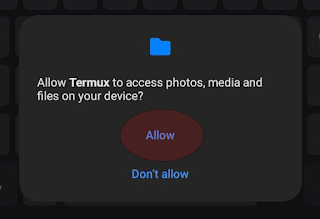Great technology links - Great learning at zero cost - December 2023
In this edition of GTL, we look at three resources that are aimed at helping both adults and children stay safe in the digitally connected world we live in. The attack surface related to this topic is wide, and each new technology that becomes embedded in our lives provides another opportunity for those out there to scam us or make money without our consent.
InternetMatters.orgType: Child Internet Safety |
InternetMatters.org is a British not-for-profit organisation launched in May 2014 by the UK's largest internet service providers, BT, Sky, TalkTalk and Virgin Media. It offers child internet safety advice to parents, carers, and professionals. It is really well organised. There is content available by age group and topic, and there are sections that schools can tap into. One also finds guides and activities that parents and their children can participate in. The site's content is kept up-to-date. For example, under online hate, one finds a definition, an explanation of different types of online hate, what resources are available to address different types of online hate, quizzes and discussions around the topic, and interviews of persons who were at the receiving end of such actions. |
National Cybersecurity AllianceType: Internet Safety |
We read about people being scammed, hacked, and becoming victims of ransomware. We are also discovering how websites and phone apps are logging every click, every like, every message, and every interaction and selling this information to data brokers, who, in turn, combine information from multiple sources to build a detailed profile about us. This consolidated information is then sold repeatedly to companies and government agencies. One common use of this data is to target us with shockingly invasive ads or to try to sway our opinions. The cost of these activities runs in the trillions, and there are no signs that this is going to diminish. The reasons for this are:
The National Cybersecurity Alliance (NCA) is a US nonprofit promoting cybersecurity education and awareness. On their site, one finds resources and guides as well as in-person and remote live events and programs. Organisations may also have someone from the NCA speak at their event. |
Dove Self-Esteem ProjectType: Confidence and Self-Esteem |
This portal is about resources that help children (mainly girls) protect themselves from what is bad, evil, and wrong on the internet. Helping them to maintain their confidence and self-esteem is fundamental to building their resilience and navigating the challenges of life. Children who believe in their abilities and have a positive self-image tend to approach problems more effectively, bounce back from setbacks more easily, and have greater success in school and in life. Teaching children to be aware of individuals who project a false reality is another important aspect of their development. Children need to understand that not everything they see and hear is true and that some people will try to manipulate them or make them feel insecure. Teaching children to think critically and to question what they hear will help them protect themselves from harmful influences. This Dove Self-Esteem Project does that. It provides the children, parents, and teachers with resources towards this goal. There are lesson plans, videos, and activities aimed at this outcome. The site has been operational for a few years, but the content remains relevant (we found a video that would not play). Dove is still active on this front, and a few months ago, it made headlines after it launched an ad campaign targeting body shaming that used distressing content. Dove is a brand owned by the multi-national Unilever. This is a commercial, for-profit brand. As soon as the page loads, one is presented with a popup that can be bypassed, asking for an email address. The portal also showcases Dove products, but overall, the site is net positive. |
 |
|
If you discover a link for inclusion in the Great technology links - Great learning at zero cost, share it as a comment.
Only forward a link if:
- You have personally verified it by consuming and following the content. Don't simply forward an email you found in your inbox or on social media.
- If free. Free means without restrictions, without limitations, and without having to take any action to use the content.
- It is about technology.
- It is in English.
- It is Legit.









Comments
Post a Comment